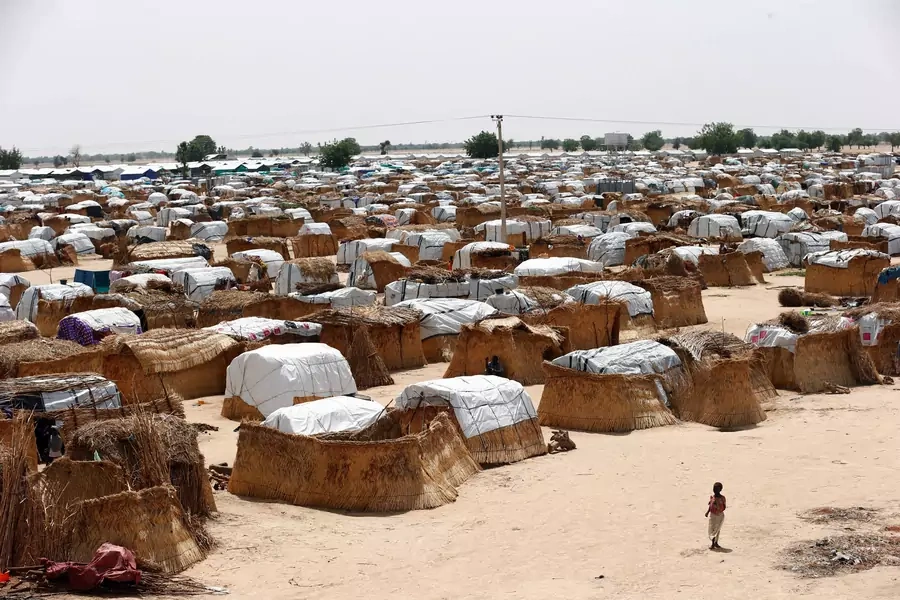The Humanitarian Crisis You Haven’t Heard About

Cheryl Strauss Einhorn is an adjunct professor at Columbia Business School and author of Problem Solved: A Powerful System for Making Complex Decisions With Confidence and Conviction.
The United Nations Refugee Agency reports that one person is forcibly displaced from their home every two seconds as a result of conflict or persecution. We have seen the photographs of Syrian refugee camps in Turkey and Lebanon, and read about Somali refugees flooding into Yemen. Worldwide, refugees—citizens who flee their own country for another—number more than 20 million. But that number is dwarfed by a more silent and devastating crisis: the over 40 million who are internally displaced.
More on:
People who have been forced from their homes but have not crossed an international border are called internally displaced persons, or IDPs. Unlike refugees, they have no protections or formally agreed-upon rules and no international resources or funding. Without any special status or supranational agency like the United Nations overseeing their welfare, the care for IDPs falls to the local and national government, where more pressing matters take precedence, such as battling the terror or natural disaster that caused the initial displacement.
“The bottom line is that, based on guiding principles, an IDP’s ultimate responsibility rests with their government, which is often unable or unwilling to respond,” says Mark Yarnell, a senior advocate with the UN Liaison at Refugees International.
Over 85 percent of the world’s displaced people, both refugees and displaced persons, are in emerging nations, mostly in Africa. There, wars and extremism have led to tragedies like the one in northern Nigeria, where the conflict with Boko Haram has pushed over 2.5 million people from their homes, and South Sudan, where civil war has forced similar numbers of people to flee.
So why doesn’t the UN or any supranational agency coordinate assistance for IDPs? Part of the problem stems from how the structure of refugee law evolved after World War II when European nations constructed laws that reflected their understanding of the nation-state. These laws deferred to a state’s sovereignty over the welfare of its people, so long as those people did not cross international borders.
The focus on national borders is especially problematic in emerging nations in Africa, where the bulk of IDPs reside. Here, colonial powers drew boundaries generally without respect to the loyalties, histories, and interests of the people they would contain. Many of these countries, like Nigeria, have ended up with diverse geographic, ethnic, and cultural issues as a result. In fact, Nigeria, the most populous African nation, has around 200 million people speaking roughly 350 different languages.
More on:
Given these issues, there is often a cultural clash between IDPs and the people in the locales where the IDPs temporarily—or permanently—settle. Different populations are suspicious of one another and of their loyalties, especially when IDPs come from areas under terrorist siege.
“Too often, IDPs are marginalized because of the mistrust,” says Kristen Wright, the director of advocacy at Open Doors USA, a charity focused on promoting religious freedom. In one heartbreaking example given by Wright, many of the families of the kidnapped Chibok girls reject their daughters when they return to safety because of fear that the girls may have been influenced by Boko Haram. As a result, Open Doors has begun dedicating resources to trauma counseling to make it easier for families to reconnect.
Wright mentions that there was “some truth that Nigerian officials have a connection to Boko Haram, which stalled the return of the girls, making it more difficult as people questioned the government’s cooperation and dedication to retrieving them.” Even as the government clears areas in the north for IDPs to return, both the IDPs and government are wary of one another. IDPs returning to their northern homes are being questioned about their loyalties and are questioning whether their old homes are actually safe.
Other pressures hurt integration as well. Sudden population growth from an influx of IDPs strains access to food and water. While remaining within their country’s borders, migrant populations also find themselves in vastly different economies. IDPs from northern Nigeria, for example, are fleeing what was once the country’s breadbasket, but their agrarian or herdsman skill sets are not easily transferable to the more urban areas where they bunk. The arable land they leave behind is lying fallow, hurting the nation’s already challenged food supply.
Although there is a precedent for the UN High Commissioner for Refugees (UNHCR) to take on issues facing IDPs, as they have in the past, it is first and foremost mandated to help refugees and to respect a nation’s sovereignty. UNHCR is now undergoing a review of its mission but it has been tight-lipped about whether it will expand its purview to IDPs. Experts do not expect much. “It isn’t likely that UNHCR’s budget would expand if it expanded its mission, so there’d simply be more of a battle for resources,” says Yarnell.
But the real problem is the issue of sovereignty. For while the international community has viewed support for refugees that flee across national borders as a legitimate act of charity, IDPs are relegated to a domestic issue under international law precisely because they have not crossed borders. They represent a state’s failure to take care of its own people on its home turf. Acknowledging that reality—and seeking or accepting outside help—is politically fraught for a sovereign state. Hence, perhaps, the difficulty of the international community to create a humanitarian architecture for IDPs parallel to the UN High Commissioner for Refugees.
 Online Store
Online Store